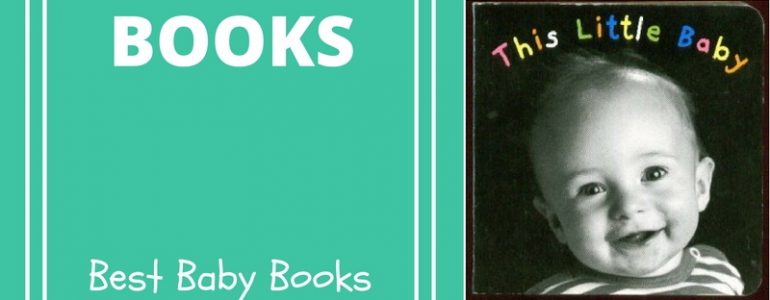Reading to school-age children is good, but does is it worth your time and investment? Do they even understand what you are reading?
The answer to these questions is a resounding ‘yes‘.
It is a fact that reading to babies contributes to the growth and development of their young brains. We all want a bright child, and that is why we spend a lot of money and time in finding the best schools and teachers for our kids. However, parents can boost their child’s learning potential by making books an essential part of their life.
Below are reasons why you should read books to your baby early on in life.
1. Creates a stronger relationship with you
Reading a book to your child is an activity that can turn into a special time. It exposes the baby to the parents’ soothing voice, and cultivates feelings of intimacy. Reading comes out as fun rather than a task or chore and it brings the two of you together.This promotes bonding.
2. It boosts brainpower
Numerous studies have shown that babies exposed to reading at an early age are more likely to perform better in school later in life. These children have a larger vocabulary and advanced mathematical skills than their age mates. Children whose parents talked to them a lot scored higher on standard tests than those whose parents hardly talk to them.
3. Better communication skills
When you spend time with your baby, they develop better interpersonal skills. They get to master interactions between characters you read.Non-verbal cues and physical contact between the two of you is also created; this will help them gain valuable communication skills.
Below is a list of books that I recommend.
Best books for babies and toddlers
1. This Little Baby by Sandra Lousada
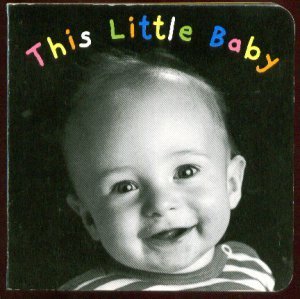
This beautiful book is aimed at younger babies to toddlers. It has 14 pages, including the cover and the back and all have colourful images of children and text. On the last page, it features a surprise mirror and on the opposite, it has some rich text that reads, “This baby is the one I love best” an excellent addition to the book.
2. My Cat That Sleeps by Joanne Partis
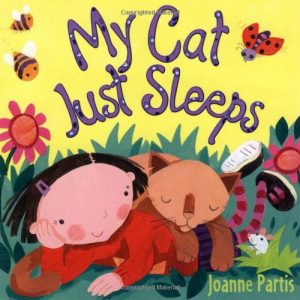
My cat just sleeps is an interesting read for all infants and school going kids as it’s very catchy, with pictures accompanying the story on several pages. It’s about a girl who wonders why her cat can’t seem to tag along with the other cats when they set out to play. She tries to nudge the cat into any activity to no avail. Unknown to her, though, her cat is nocturnal and does have a lot of activities going on during the night when she’s asleep. The language is simple and the repetition of ‘my cat just sleeps’ adds some sweet flair to the tale.
3. The Very Hungry Caterpillar by Eric Carle
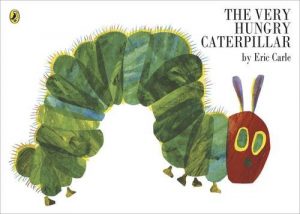
This book board is about a caterpillar that eats everything and eventually morphs into a butterfly. Eric Carle presents the concept of metamorphosis in a way that young children can understand. He utilises bright colour and mixed media collages that burst from the pages. The beautiful butterflies spread the whole two pages in yellow, green, blue, and red that makes up its vibrant coloured wings.
4. Baby Touch: Peekaboo Board Book by Ladybird
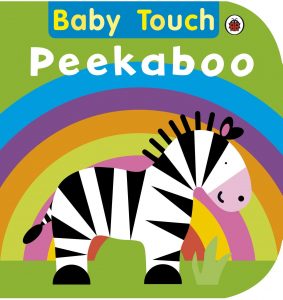
This book is a narration by a small boy who seems to be noticing things going on around him that adults can’t seem to see since they are too pre-occupied .The narration is good and short. This is particularly important as it keeps the young reader’s attention on the story. The use of perforations on the pages creates a level of curiosity in the young child to find out what is in the next page.
5. Dear Zoo Board Book by Rod Campbell
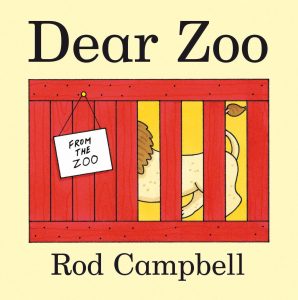
Dear zoo is an amazing piece from Rod Campbell. It was first published in 1982 and quickly gained much popularity with parents. It’s easy to read with flaps on the edges that make it fun and interactive for the children. The use of colourful art that is catchy to the eye is every young reader’s dream.
You get to lift the flaps when searching for an ideal pet. Different zoo animals are revealed until the desired pet is discovered. This book is stylish, interactive and babies will enjoy it for a long time.
We all want bright, intelligent (and some of us even science minded) children. To achieve this, you have to get them age-appropriate books; they might not have the ability to understand what you are reading to them, but they will love your voice and the attention they are getting. This will eventually boost their mental capacity.

